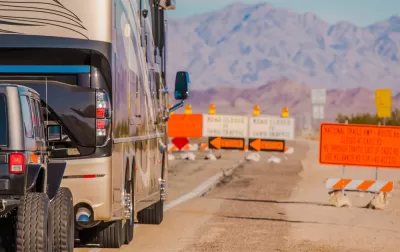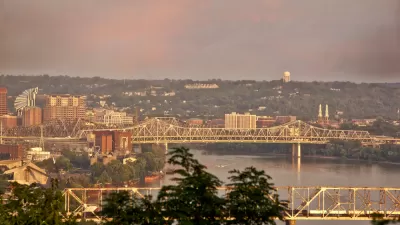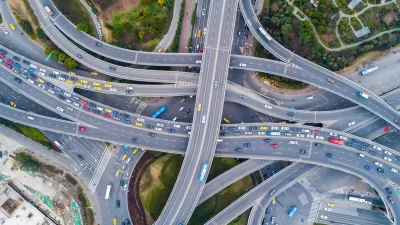Democratic legislators in Nevada are considering a constitutional amendment that would allow the state to use gas tax revenues for transportation projects other than road construction, maintenance, and repair.

According to an article by Riley Snyder, Nevada elected officials are considering a drastic change of transportation funding policy.
[B]etween desires to limit urban sprawl and address root causes of climate change, Nevada lawmakers are considering moving forward with a proposed constitutional amendment that would open up use of gas taxes and other automobile-related fees to more than just road construction and repair.
The amendment would allow gas taxes to be spent on a broader category of "transportation infrastructure. Gas tax revenues are currently limited for "construction, maintenance, and repair" of the state's public highways.
The Interim Legislative Committee on Energy has already voted to move forward with the amendment, reports Riley, although without Republican support.
The proposed constitutional change faces several political hurdles, including opposition to the idea from labor unions and construction associations, which believe that road construction and maintenance funds are already in scant supply in the state. But the discussion about transportation spending fits into larger discussions in the state about how to approach the challenges presented by climate change and population growth:
Urban transit funding and development have become increasingly prominent and pressing issues for state leaders in recent years, given expected population growth over the next decade and attempts by lawmakers and Gov. Steve Sisolak to reduce Nevada’s share of greenhouse gas emissions that contribute to climate change.
Planetizen correspondent Irvin Dawid wrote in August 2019 about Nevada's participation in the Western Road Usage Charge Consortium, which could also pave the way for a drastic change in transportation funding policy by using vehicle miles traveled as the taxing mechanism for drivers.

Alabama: Trump Terminates Settlements for Black Communities Harmed By Raw Sewage
Trump deemed the landmark civil rights agreement “illegal DEI and environmental justice policy.”

Study: Maui’s Plan to Convert Vacation Rentals to Long-Term Housing Could Cause Nearly $1 Billion Economic Loss
The plan would reduce visitor accommodation by 25% resulting in 1,900 jobs lost.

Why Should We Subsidize Public Transportation?
Many public transit agencies face financial stress due to rising costs, declining fare revenue, and declining subsidies. Transit advocates must provide a strong business case for increasing public transit funding.

Wind Energy on the Rise Despite Federal Policy Reversal
The Trump administration is revoking federal support for renewable energy, but demand for new projects continues unabated.

Passengers Flock to Caltrain After Electrification
The new electric trains are running faster and more reliably, leading to strong ridership growth on the Bay Area rail system.

Texas Churches Rally Behind ‘Yes in God’s Back Yard’ Legislation
Religious leaders want the state to reduce zoning regulations to streamline leasing church-owned land to housing developers.
Urban Design for Planners 1: Software Tools
This six-course series explores essential urban design concepts using open source software and equips planners with the tools they need to participate fully in the urban design process.
Planning for Universal Design
Learn the tools for implementing Universal Design in planning regulations.
Caltrans
Smith Gee Studio
Institute for Housing and Urban Development Studies (IHS)
City of Grandview
Harvard GSD Executive Education
Toledo-Lucas County Plan Commissions
Salt Lake City
NYU Wagner Graduate School of Public Service





























